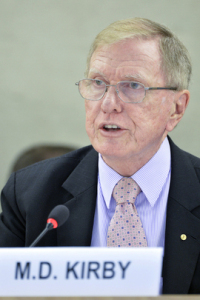Cyber Crime or Cyber War?
Is the alleged Guardians of Peace hackers’ action a cyber crime or that of cyber terror or cyber war? The distinction may not appear particularly relevant from the perspective of a victim as Sony, but could our response unleash a defensive response that could be more damaging to freedom than the hack? The hackers also sought to frighten theaters from screening and moviegoers from venturing to see The Interview. This threat could only be seen as serious even if perhaps not entirely credible – the risk regardless of how small could carry grave consequences – many including those not even venturing to see this film.
In the end though, the fact that the film will be streamed on the Internet appears to be the best defense, even for theaters and moviegoers. Now that the “Guardians of Peace” know that they cannot stop millions from watching on You Tube, or XBox or Sony Streaming, then the threat of violence against theaters and moviegoers appears emasculated as means of silencing the film. The worst risk for the film now is bad reviews. Even the apparent vast pirating of the film has proven as means to virally spread its content even as the profit may be dented for Sony and partners.
Dictators Seeking Threats & Fears from Internet as Narrative for More Control?
There are real threats from the Internet ranging from attacks upon the power grid to terror recruitment. However, it is critical that the remedy not be worse for freedom than the threat. Most private firms have the resources to build cyber walls to protect their confidential information and that of clients. Governments can protect key assets without limiting access of free citizens to content, to the free marketplace of ideas. It is no coincidence that more autocratic regimes as Beijing’s ruling elite, hosted a World Internet Conference whose main theme has been that the Internet needs to be more regulated to block dangerous content and thus further enhance the commercial benefits. (See: “Come to the Virtual Atlantis!”)
More troubling is that some in free societies are only too eager to embrace the notion of the Web as new platform for conflict or even war rather than a free marketplace of ideas. This not only pushes wares and services, certainly some of which are needed, but it also empowers governments, agencies and their contractors some of whom would assume ever greater rights of surveillance and control.
Screening the “The Interview” at the UN?
If the US government is seeking means to “proportionally” respond to North Korea’s threats, then perhaps screening The Interview at the United Nations would be a memorable retort even if it would undoubtedly raise that regime’s ire several notches higher. (North Korea is already subject to pressure by a UN-mandated human rights committee which has recommended that its regime be referred to the International Criminal Court.)
UN PHOTO Below/Jean-Marc Ferre: Michael Kirby, Chair of the Commission of Inquiry on Human Rights in the Democratic People’s Republic of Korea (DPRK), briefs the Human Rights Council. He said that the Commission of Inquiry had found systematic, widespread and grave human rights violations occurring in the Democratic People’s Republic of Korea. It had also found a disturbing array of crimes against humanity.
A Supreme Being more Powerful than North Korea Dictator:
Whether WikiLeaks or Snowden or the NSA is the threat or defender is a debate still ongoing. No need for me to prejudge, but I would suggest that the answer is not absolute as some would lead us to believe. Similarly, content that some religions or nations may find offensive cannot be the foundation of either furthering understanding and co-existence or global citizen communication and freedom of expression. While some Muslims or Christians or Jews or Hindus or…. may see insult or even blasphemy in content, I have no doubt that God is not as vulnerable, certainly not as a North Korea dictator. It is not the infallibility of Holy Books or Prophets or … that is at issue but the more or less free governments and regimes that would hide behind religion to perpetuate authority without being challenged. (See: “In Hunt for ‘Spy Snowden,’ Is US Losing More Than Secrets?”)
Best Defense Against Cyber War may be an even more Free Internet?
Bad ideas, hate, and even incitement are best sanitized by being exposed to the free marketplace of ideas. The ever-enhanced communication between global citizens, and their national and multilateral institutions and leaders, has opened a new avenue for democracy to be broadened and for the fear of “the other” to be overcome as narrative for conflict and war. The Interview may prove to be less than memorable as digital diplomacy. However, it has evidenced that a free internet may be the best defense versus those who would usurp the web as political terrorists or self-appointed censors. Dialogue is the essence of peace as it is of digital diplomacy, and any efforts to curtail the freedom of movement of our or others’ ideas must overcome a very heavy burden of proof. In fact, more rather than less freedom may be the best defense versus those who would engage in cyber war.
Freedom is the “Redemption Song” by Bob Marley: Watch YouTube video
https://www.youtube.com/watch?v=6KKhHpYb0yU
@MuhamedSacirbey
http://diplomatartist.com/the-interview-digital-diplomacy-a-battlefield-or-marketplace-of-ideas/









